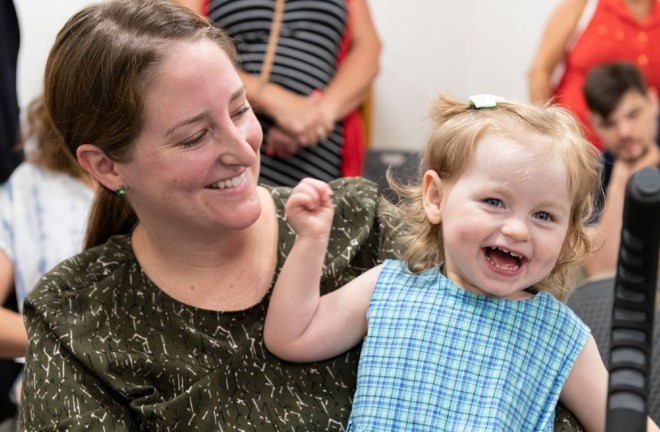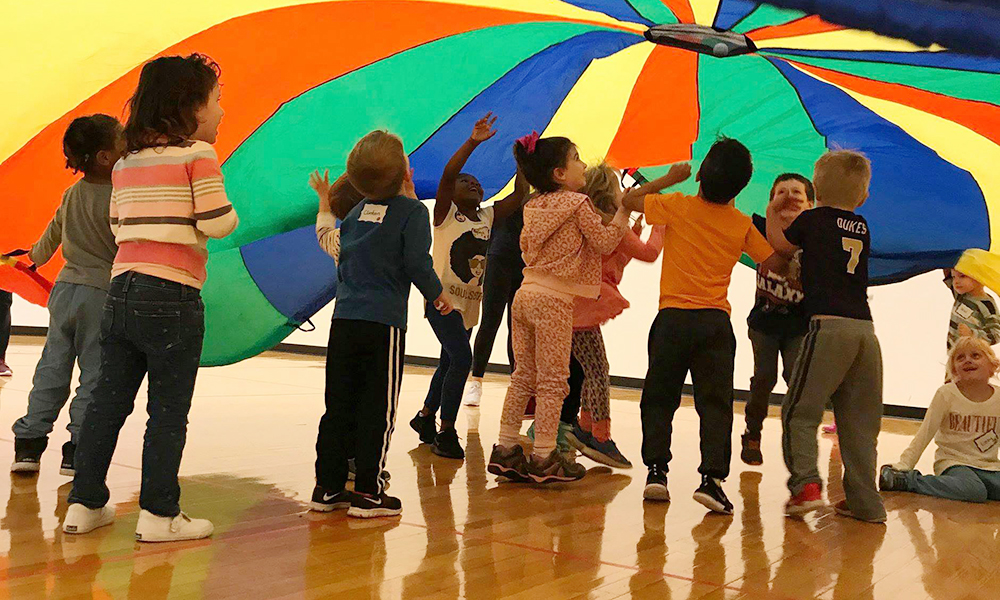CDC advisors recommend booster shot for children ages 5 to 11

“Vaccination with a primary series among this age group has lagged behind other age groups leaving them vulnerable to serious illness,” Walensky said. “With over 18 million doses administered in this age group, we know that these vaccines are safe, and we must continue to increase the number of children who are protected.”
Walensky also announced that the CDC was strengthening its recommendation that people 50 and older should get a second booster dose — a fourth shot in most cases — to be considered up to date on their coronavirus vaccinations. Previously, the agency said that older adults may get a booster. Immunocompromised people 12 and older should also get a second booster, she added.
“With cases increasing, it is important that all people have the protection they need,” Walensky added.
The CDC advisers voted 11-1, with one member abstaining from the vote, to recommend that 5-to-11-year-olds should get a third dose of the Pfizer vaccine at least five months after completing their initial two shot series. Children in that age group who are moderately to severely immunocompromised had already been authorized to receive a three-dose primary series; those especially vulnerable can now get a second booster dose. Eligible children can receive a booster immediately.
The guidance comes for a cohort for whom the protection of the two-shot regimen has been disappointing. Real-world studies have shown that vaccine efficacy rapidly waned in children ages 5 to 11, though it held up against severe outcomes. Data provided by Pfizer and BioNTech have shown that a booster strengthens children’s immune defenses, particularly against the omicron variant.
The advisers debated whether the CDC offer guidance that children “may” get a third dose, or whether they “should” get the booster. Most favored saying “should,” in part to be consistent with the recommendations for adolescents and adults.
“What we really need to do is be consistent and be as clear and simple as possible,” said Beth Bell, clinical professor at the University of Washington’s School of Public Health.
Others supported recommending the booster because the data shows that a three-dose vaccine likely offers stronger protection than a two-dose course.
“I’m concerned that the ‘may’ does not portray the urgency that we have overall with vaccines,” Katherine A. Poehling, a professor of pediatrics and epidemiology at the Wake Forest School of Medicine.
Helen Keipp Talbot, an associate professor of medicine at Vanderbilt University, emphasized that immunocompromised children should get a fourth shot to boost their immunity but said the focus should be on getting more otherwise healthy kids vaccinated with their primary series.
“Very few have gotten their first two doses, and I think that’s incredibly important for us to focus on before we start boosting them,” Talbot said.
Vaccine uptake among children ages 5 to 11 is low, and it is unclear how many parents will embrace booster shots for their children. Less than 30 percent of children ages 5 to 11 have been fully vaccinated, and about 36 percent have had at least one dose, according to data published by the CDC.
The Food and Drug Administration on Monday authorized a third dose for children ages 5 to 11. The Pfizer vaccine is the only one authorized for children in that age group, although the FDA is considering authorizing other pediatric vaccines in the future.
In a statement released Tuesday, FDA Commissioner Robert M. Califf said that while covid-19 has been less severe in children than adults, “the omicron wave has seen more kids getting sick with the disease and being hospitalized, and children may also experience longer-term effects, even following initially mild disease.” Califf said the booster was authorized to provide additional protection for children.
The nation’s largest association of doctors endorsed the new booster guidance for kids and expressed concern that so few children have been vaccinated, in part because of the belief that children do not get as sick from the virus as adults.
“The Omicron variant brought about change that should alter that calculus,” Gerald E. Harmon, president of the American Medical Association, said in a statement. “According to the [CDC], the highly transmissible variant not only sent more children to the hospital and ICU than previous waves, but children who were unvaccinated were twice as likely to be hospitalized as those were vaccinated.”
Other advisers supported recommending the booster for all children in this age group to simplify the CDC’s advice and protect immunocompromised and otherwise vulnerable children who may be exposed to healthy children in school or other settings.
“It is confusing when we say ‘may,’ ” said Camille Nelson Kotton, an associate professor of Medicine at Harvard Medical School who treats transplant patients. “I am very surprised to find that the vast majority of immunocompromised patients are not up to date with their vaccines and are vulnerable to significant, including life threatening, infections. I believe that a ‘should’ recommendation would help provide the necessary clarity.”
While children have generally suffered milder illness than adults, some are at risk for severe covid-19. Since the authorization of vaccines for children in November, there have been 2.9 million coronavirus cases, 6,700 hospitalizations, 739 cases of multi-system inflammatory syndrome in children (MIS-C) and 95 deaths among children ages 5 to 11, according to data presented Thursday. The vast majority of those hospitalized children — 90 percent — were unvaccinated. And 93 percent of children who developed MIS-C were unvaccinated.
Federal health data released in April showed that by the end of February, 3 of 4 children in the United States had contracted the coronavirus at least once since the pandemic began.
The CDC advisers reviewed data that showed the booster shot’s potential to prevent infection and the likelihood that the third dose could reduce the risk of post-covid conditions like MIS-C, which children ages 5 to 11 are most likely to experience, according to data presented Thursday. Two studies of the coronavirus in adolescents found that vaccinated individuals were less likely to experience post-covid conditions and were less likely to have symptoms 12 to 20 weeks after infection, compared with unvaccinated individuals.
In a clinical trial that looked at the safety of the booster dose, there were no serious adverse events reported among the participants, including no deaths or instances of anaphylaxis after the third shot. The most common symptoms following the shot were all mild and included pain, redness and swelling at the injection site and fatigue.
Children ages 5 to 11 are the last age group to gain access to a booster. The CDC recommended boosters for children ages 12 to 17 in January and for all adults in November. The agency allowed people 65 and older to get a second booster dose — a fourth shot in most instances — although it stopped short of recommending the extra booster for those older adults. The nation’s children younger than 5 do not yet have an authorized vaccine.
The advisers’ guidance comes amid concerns of waning immunity from vaccines and past infections just as a highly transmissible subvariant of omicron called BA.2 is rapidly becoming dominant in the United States. The nation reached 1 million coronavirus deaths this week.
“There are too many who do not have the protection necessary as we face yet another increase in cases and hospitalizations,” Walensky said during Thursday’s meeting. “We know immunity wanes over time, and we need to do all we can now to protect those who are vulnerable.”
New infections neared 100,000 this week nationwide, raising concerns that the nation could see another surge as people plan to gather for the Memorial Day weekend. Biden officials, who have been appealing to Congress to authorize more covid preparedness funding, warned earlier this month of a possible summer surge across the South and a fall surge that could infect 100 million people.







